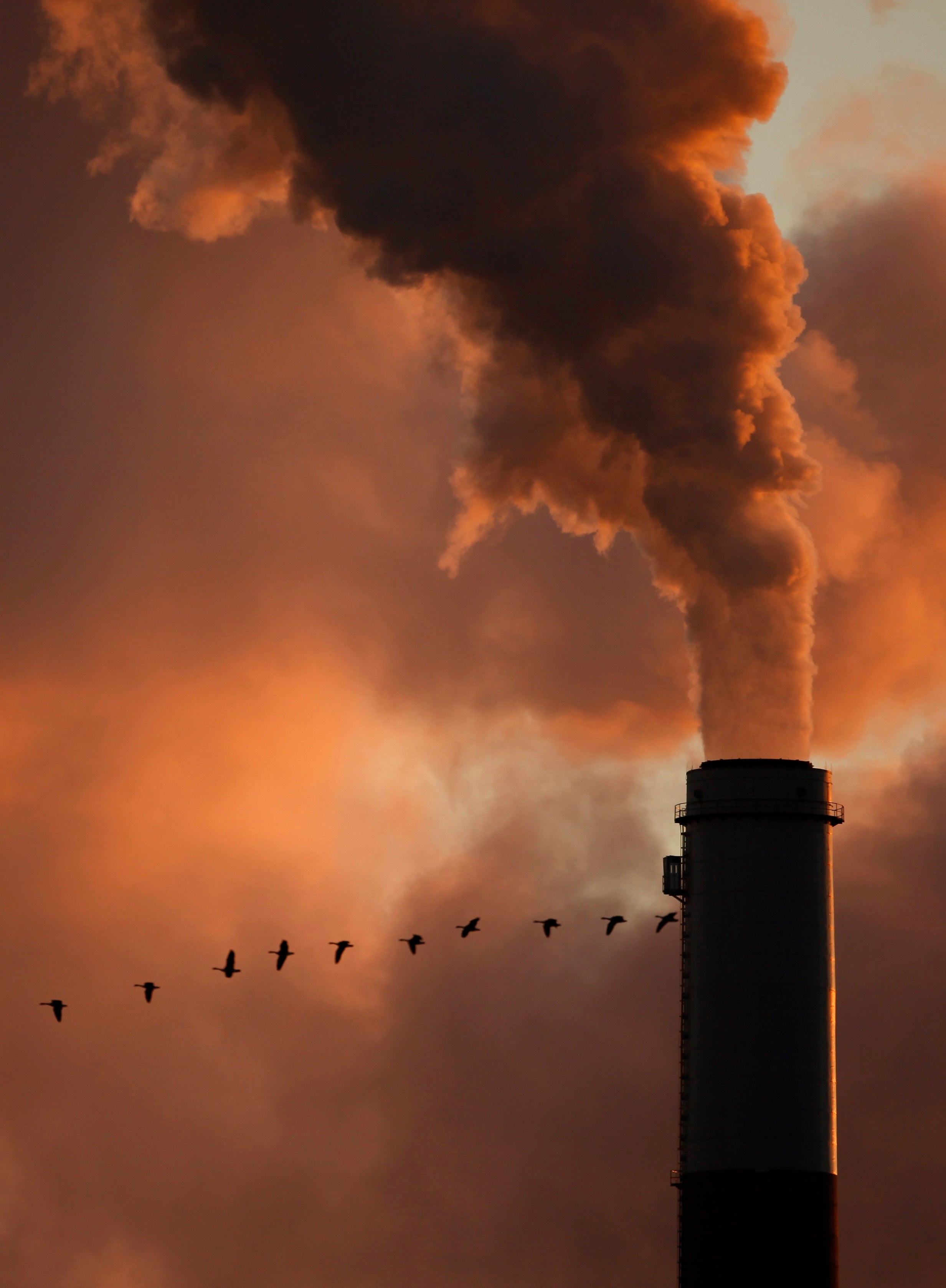Study: Warming already baked in will blow past climate goals
A new study says the amount of global warming already baked into the air because of past carbon pollution is enough to blow past internationally agreed upon climate limits

Your support helps us to tell the story
From reproductive rights to climate change to Big Tech, The Independent is on the ground when the story is developing. Whether it's investigating the financials of Elon Musk's pro-Trump PAC or producing our latest documentary, 'The A Word', which shines a light on the American women fighting for reproductive rights, we know how important it is to parse out the facts from the messaging.
At such a critical moment in US history, we need reporters on the ground. Your donation allows us to keep sending journalists to speak to both sides of the story.
The Independent is trusted by Americans across the entire political spectrum. And unlike many other quality news outlets, we choose not to lock Americans out of our reporting and analysis with paywalls. We believe quality journalism should be available to everyone, paid for by those who can afford it.
Your support makes all the difference.The amount of baked-in global warming, from carbon pollution already in the air is enough to blow past international agreed upon goals to limit climate change a new study finds.
But it’s not game over because, while that amount of warming may be inevitable, it can be delayed for centuries if the world quickly stops emitting extra greenhouse gases from the burning of coal, oil and natural gas, the study’s authors say.
For decades, scientists have talked about so-called “committed warming” or the increase in future temperature based on past carbon dioxide emissions that stay in the atmosphere for well over a century. It's like the distance a speeding car travels after the brakes are applied.
But Monday’s study in the journal Nature Climate Change calculates that a bit differently and now figures the carbon pollution already put in the air will push global temperatures to about 2.3 degrees Celsius (4.1 degrees Fahrenheit) of warming since pre-industrial times.
Previous estimates, including those accepted by international science panels, were about a degree Celsius (1.8 degrees Fahrenheit) less than that amount of committed warming.
International climate agreements set goals of limiting warming to 2 degrees Celsius (3.6 degrees Fahrenheit) since pre-industrial times, with the more ambitious goal of limiting it to 1.5 degrees Celsius (2.7 degrees Fahrenheit) added in Paris in 2015. The world has already warmed about 1.1 degrees Celsius (2 degrees Fahrenheit).
“You’ve got some ... global warming inertia that’s going to cause the climate system to keep warming, and that’s essentially what we’re calculating,” said study co-author Andrew Dessler, a climate scientist at Texas A&M University. “Think about the climate system like the Titanic. It’s hard to turn the ship when you see the icebergs.”
Dessler and colleagues at the Lawrence Livermore National Lab and Nanjing University in China calculated committed warming to take into account that the world has warmed at different rates in different places and that places that haven’t warmed as fast are destined to catch up.
Places such as the Southern Ocean, surrounding Antarctica are a bit cooler, and that difference creates low-lying clouds that reflect more sun away from earth, keeping these places cooler. But this situation can’t keep going indefinitely because physics dictates that cooler locations will warm up more and when they do, the clouds will dwindle and more heating will occur, Dessler said.
Previous studies were based on the cooler spots staying that way, but Dessler and colleagues say that’s not likely.
Outside experts said the work is based on compelling reasoning, but want more research to show that it’s true. Breakthrough Institute climate scientist Zeke Hausfather said the new work fits better with climate models than observational data.
Just because the world is bound to get more warming than international goals, that doesn’t mean all is lost in the fight against global warming, said Dessler, who cautioned against what he called “climate doomers.”
If the world gets to net zero carbon emissions soon, 2 degrees of global warming could be delayed enough so that it won’t happen for centuries, giving society time to adapt or even come up with technological fixes, he said.
“If we don’t, we’re going to blow through (climate goals) in a few decades,” Dessler said. “It’s really the rate of warming that makes climate change so terrible. If we got a few degrees over 100,000 years, that would not be that big a deal. We can deal with that. But a few degrees over 100 years is really bad.”
___
Read stories on climate issues by The Associated Press at https://apnews.com/hub/climate.
___
Follow Seth Borenstein on Twitter at @borenbears.
___
The Associated Press Health and Science Department receives support from the Howard Hughes Medical Institute’s Department of Science Education. The AP is solely responsible for all content.